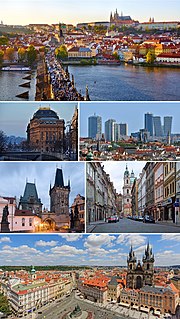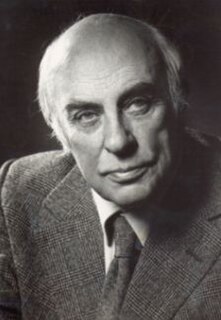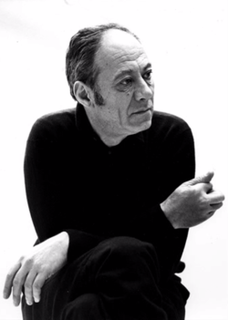The Second International Congress of Composers and Music Critics was held in Prague between May 20 and May 29 in 1948, and was an important moment in the development of musical life in post-war Czechoslovakia. It was also a significant intervention in the debate over the state of modern music, and was frequently referred to in subsequent writings on the subject of the relationship between music and political and social change. The conference was organised by the Syndicate of Czech Composers, which was founded on 20 February 1946, and had also arranged the spring music festival known as Prague Spring International Music Festival since 1946, and the First Congress of Composers and Music critics. The Proclamation of the Conference later became known as 'The Prague Manifesto'

Prague is the capital and largest city in the Czech Republic, the 14th largest city in the European Union and the historical capital of Bohemia. Situated in the north-west of the country on the Vltava river, the city is home to about 1.3 million people, while its metropolitan area is estimated to have a population of 2.6 million. The city has a temperate climate, with warm summers and chilly winters.

Czechoslovakia, or Czecho-Slovakia, was a sovereign state in Central Europe that existed from October 1918, when it declared its independence from the Austro-Hungarian Empire, until its peaceful dissolution into the Czech Republic and Slovakia on 1 January 1993.

The Prague Spring International Music Festival is a permanent showcase for outstanding performing artists, symphony orchestras and chamber music ensembles of the world.
The conference was attended by around 70 musicians, composers, and music critics from 14 countries, including the British composers Alan Bush and Bernard Stevens. It was also attended by the German composer and philosopher Hanns Eisler who delivered a lecture on 'Basic Social Questions of Modern Music'. He declared that

Alan Dudley Bush was a British composer, pianist, conductor, teacher and political activist. A committed communist, his uncompromising political beliefs were often reflected in his music. He composed prolifically across a range of genres, but struggled through his lifetime for recognition from the British musical establishment, which largely ignored his works.

Hanns Eisler was an Austrian composer. He is best known for composing the national anthem of East Germany, for his long artistic association with Bertolt Brecht, and for the scores he wrote for films. The Hochschule für Musik "Hanns Eisler" is named after him.
"After all the excesses and experiments, it appears today to be the job of music of our time to lead music back to a higher form of society, to lead it back from the private to the universal" [1]
The Conference aimed to offer solutions to what participants saw a crisis in modern music. Problems were summed up under three headings [2]
- 'The Structure and Expression of Modern Music'
- 'Functions of Serious and Light Music'
- 'Problems of Music criticism Today'
The Prague Manifesto offered a set of principles for composers, which involved avoiding extreme subjectivism and allying themselves more closely with their national cultures. It also called for composers to focus on music that could have concrete content, such as opera, oratorio, and songs. Although the proclamation echoes the 1948 Conference of Composers in the Soviet Union, and the Zhdanov Doctrine, the notion that the Soviet delegates dictated the outcome has been challenged. [3]
Subjectivism is the doctrine that "our own mental activity is the only unquestionable fact of our experience.", instead of shared or communal, and that there is no external or objective truth.

Opera is a form of theatre in which music has a leading role and the parts are taken by singers, but is distinct from musical theater. Such a "work" is typically a collaboration between a composer and a librettist and incorporates a number of the performing arts, such as acting, scenery, costume, and sometimes dance or ballet. The performance is typically given in an opera house, accompanied by an orchestra or smaller musical ensemble, which since the early 19th century has been led by a conductor.
An oratorio is a large musical composition for orchestra, choir, and soloists. Like most operas, an oratorio includes the use of a choir, soloists, an instrumental ensemble, various distinguishable characters, and arias. However, opera is musical theatre, while oratorio is strictly a concert piece – though oratorios are sometimes staged as operas, and operas are sometimes presented in concert form. In an oratorio the choir often plays a central role, and there is generally little or no interaction between the characters, and no props or elaborate costumes. A particularly important difference is in the typical subject matter of the text. Opera tends to deal with history and mythology, including age-old devices of romance, deception, and murder, whereas the plot of an oratorio often deals with sacred topics, making it appropriate for performance in the church. Protestant composers took their stories from the Bible, while Catholic composers looked to the lives of saints, as well as to Biblical topics. Oratorios became extremely popular in early 17th-century Italy partly because of the success of opera and the Catholic Church's prohibition of spectacles during Lent. Oratorios became the main choice of music during that period for opera audiences.
The Prague Manifesto forced thinkers outside Czechoslovakia to confront aesthetic and ideological issues. [4] It was criticised by Theodor Adorno in his Die Gengangelte Musik. It was also discussed by Sartre in his introduction to Rene Leibowitz' 'The Artist and His conscience'. Sartre described the Prague Manifesto as "the stupid and extreme consequence of a perfectly defensible theory of art, and one that does not necessarily imply an aesthetic authoritarianism" [5]










